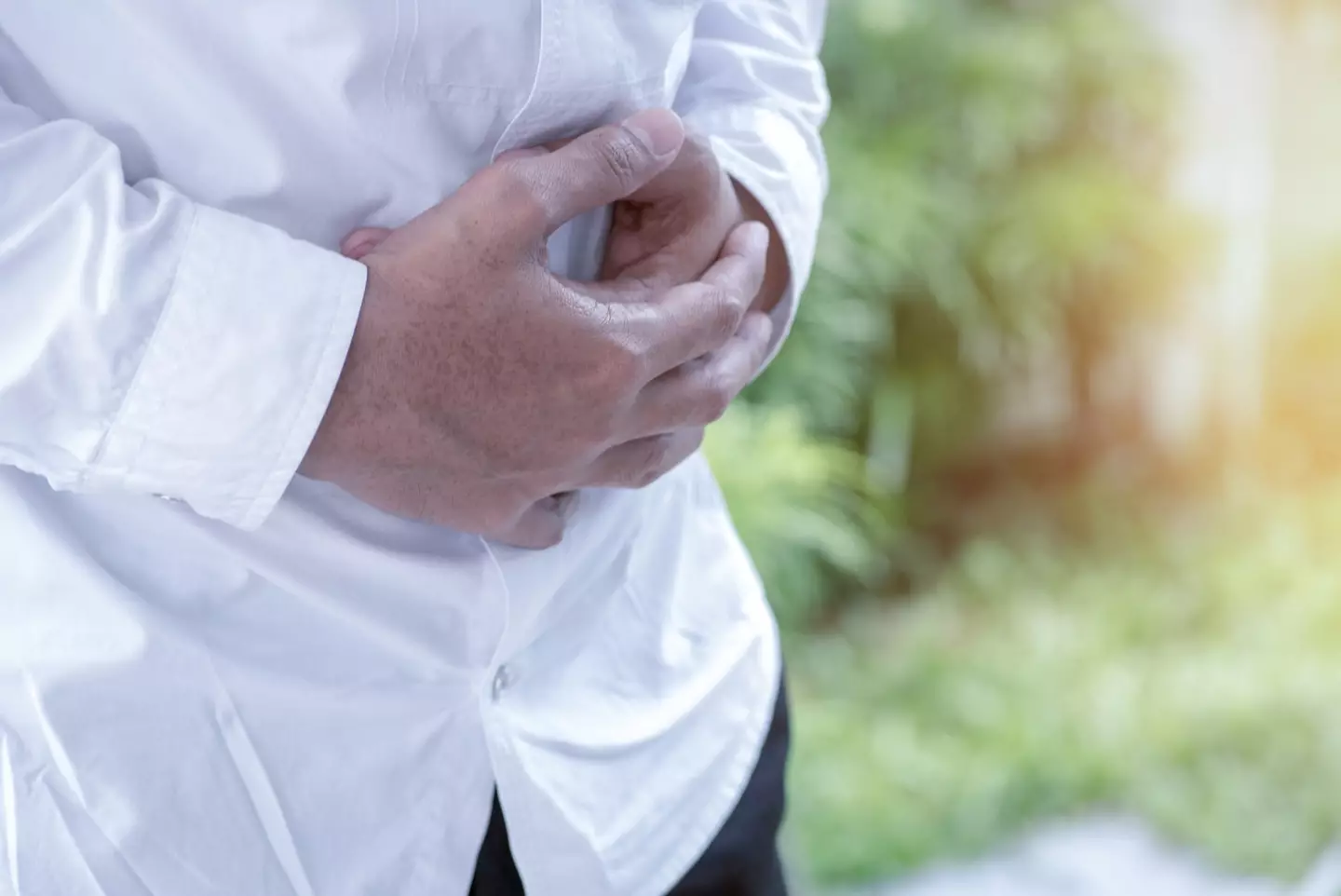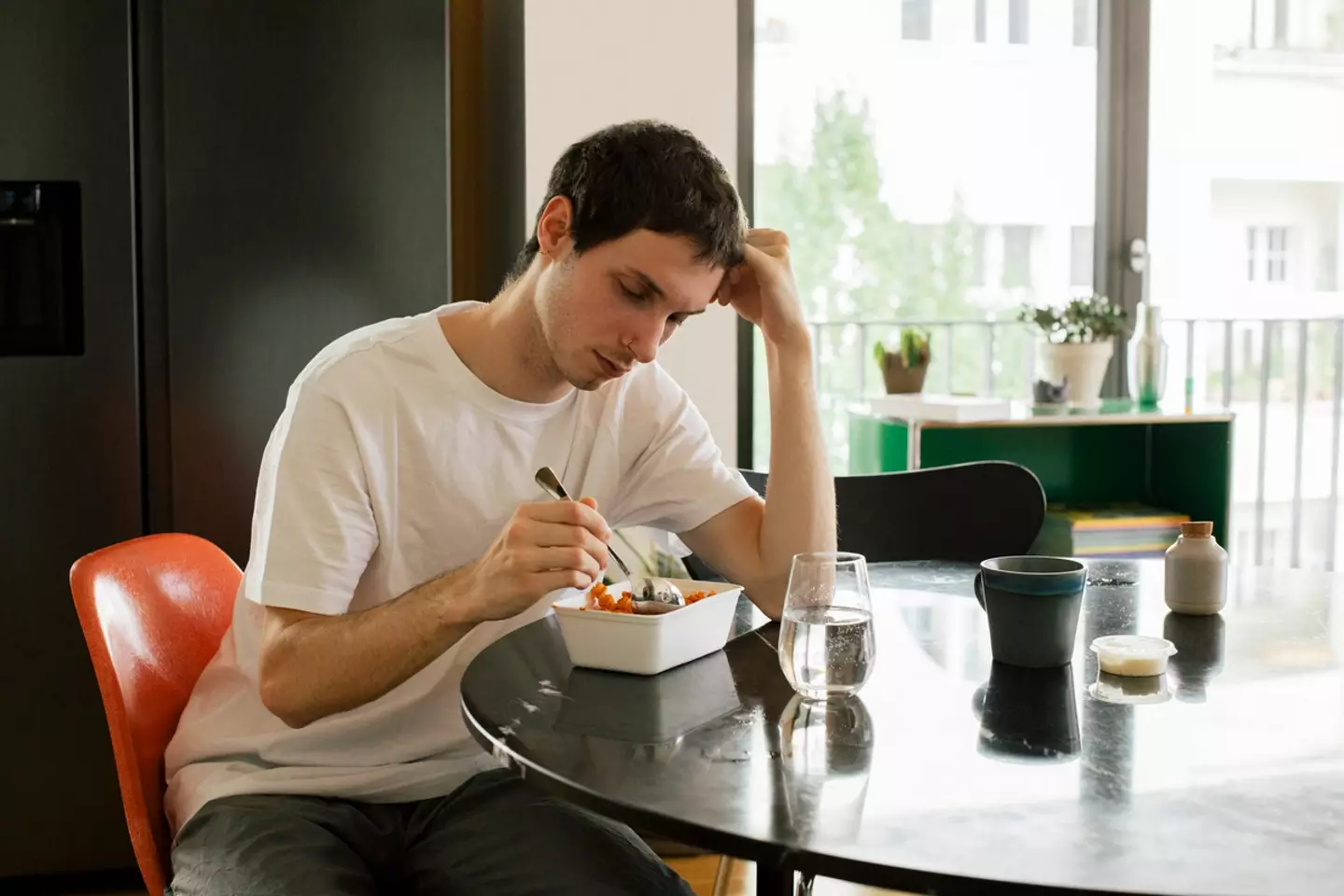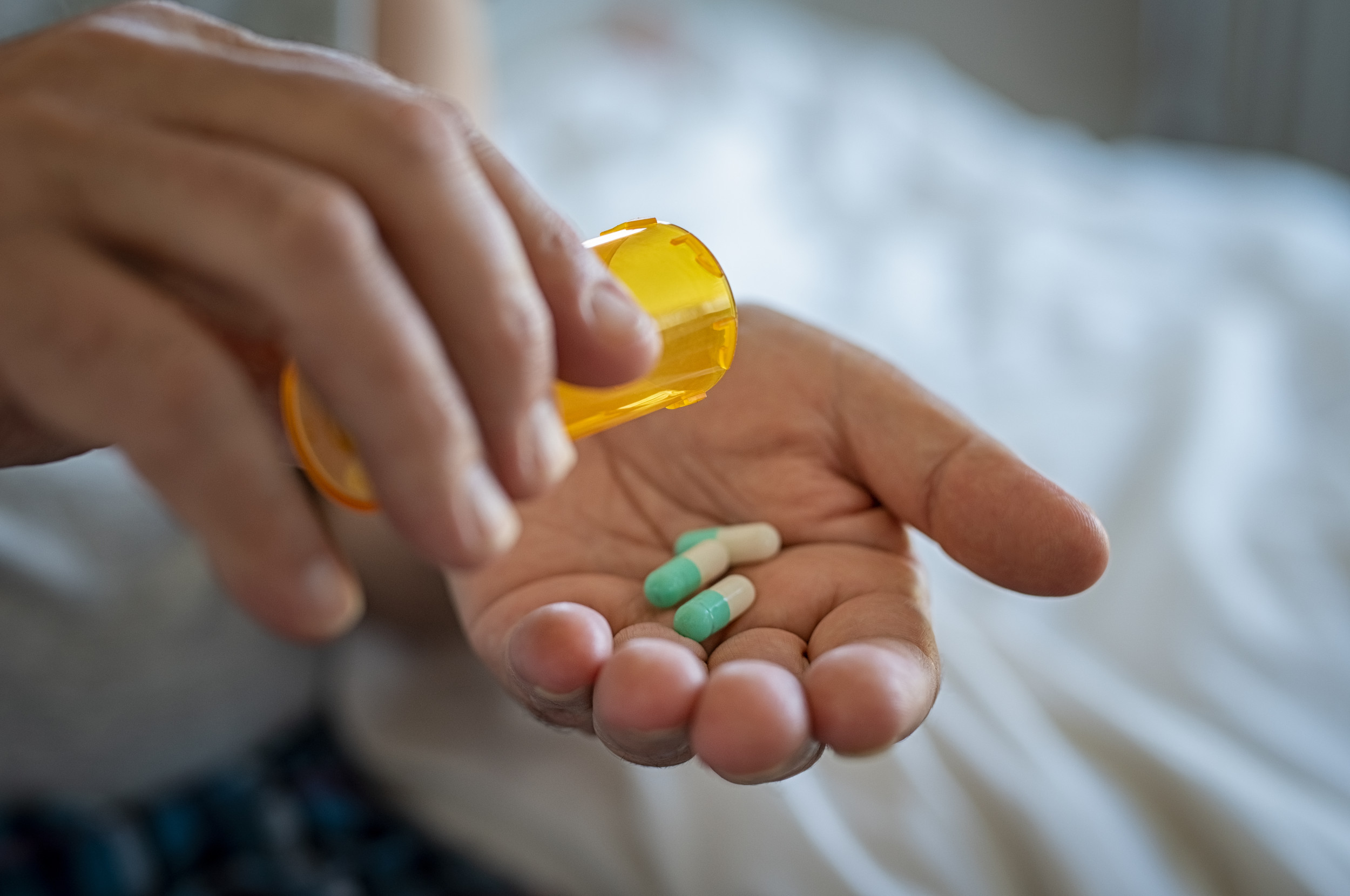A medical professional has urged people to 'pay close attention to your body's warning signs' as he shared a symptom of a potentially fatal illness that can present itself while you eat.
It's to do with a key part of your digestive system, with the type of cancer claiming the lives of 5,800 in the UK each year, making it the country's eighth deadliest form of the disease.
Clocking onto it early means that surgery or transplants could help eradicate the disease, but the NHS states that most cases are only discovered when it's too late for either of these treatments.

Liver cancer is the eighth most common cancer among Brits (Getty Stock Photo)
What is liver cancer?
Liver cancer is a form of cancer that is found within the organ, which is at the top right side of your tummy.
The organ helps to filter blood and remove toxins, and the cancer can start in the liver itself or spread from another organ, according to the NHS.
How serious the cancer is depends on where it is exactly, its size, if it has spread, if it was primary or not and your health in general.
Symptoms of liver cancer
Primary liver cancer doesn't show any symptoms in its early stages, though when they do show, they can be:
- Loss of weight
- Jaundice - Yellowing of the skin and whites of eyes
- Itching
- Feeling ill
- Swollen abdomen/tummy
- Loss of appetite or feeling full quickly
- Abdomen pain
- A lump in your abdomen
- Pain in your right shoulder
Cancer Research UK advises you to see your GP if you have any of these symptoms, though 'primary liver cancer isn't common in the UK', as symptoms can also vary depending on where they are.

You should be able to spot this disease during meal times (Getty Stock Photo)
Liver cancer symptom to look out for when eating
One symptom has been highlighted by a medical expert at GlowBar, Dr Joseph Ambani, who explained what to look for to Surrey Live.
He highlighted that the 'first' signs of the disease show up while eating, and 'early on' in the disease.
"Generally, people living with liver cancer will find themselves losing their appetite for food or being unable to eat as much as before due to abdominal discomfort or nausea," he explained.
"Additionally, those affected by the disease may find that even eating small amounts causes pain and discomfort in the stomach area."
A sudden change in appetite could be a huge warning sign but because of its subtle symptoms, it is often dismissed.
"To identify potential liver cancer, pay close attention to your body's warning signs," Dr Ambani urged.

A severe loss in appetite, or feeling full quickly, could be a sign of liver cancer (Getty Stock Photo)
When should you see a doctor?
Cancer Nurse Lisa Jacque from Perci Health advises that just because you may have these symptoms, doesn't necessarily mean that you have cancer.
"So having these symptoms does not mean you definitely have liver cancer," she explained.
"It is important to speak to your GP about these symptoms, or any other symptoms that you are concerned about. If they are caused by cancer, detecting cancer earlier means it is more treatable."
The NHS urges that if you get any of these symptoms, it is imperative you get checked 'as soon as possible'.
However, it is believed that obesity and a poor diet can increase the risk of liver cancer, as well as excessive alcohol consumption.
You are also statistically more likely to get liver cancer if you are:
- Over the age of 60
- Male
- Have pre-existing medical conditions such as hepatitis, liver cirrhosis, gallstones, diabetes, a parasite in the liver (liver flukes) or HIV
- Have an immediate family member who had primary liver cancer
If you’ve been affected by any of these issues and want to speak to someone in confidence, contact Macmillan’s Cancer Support Line on 0808 808 00 00, 8am–8pm seven days a week.




















 English (US) ·
English (US) ·